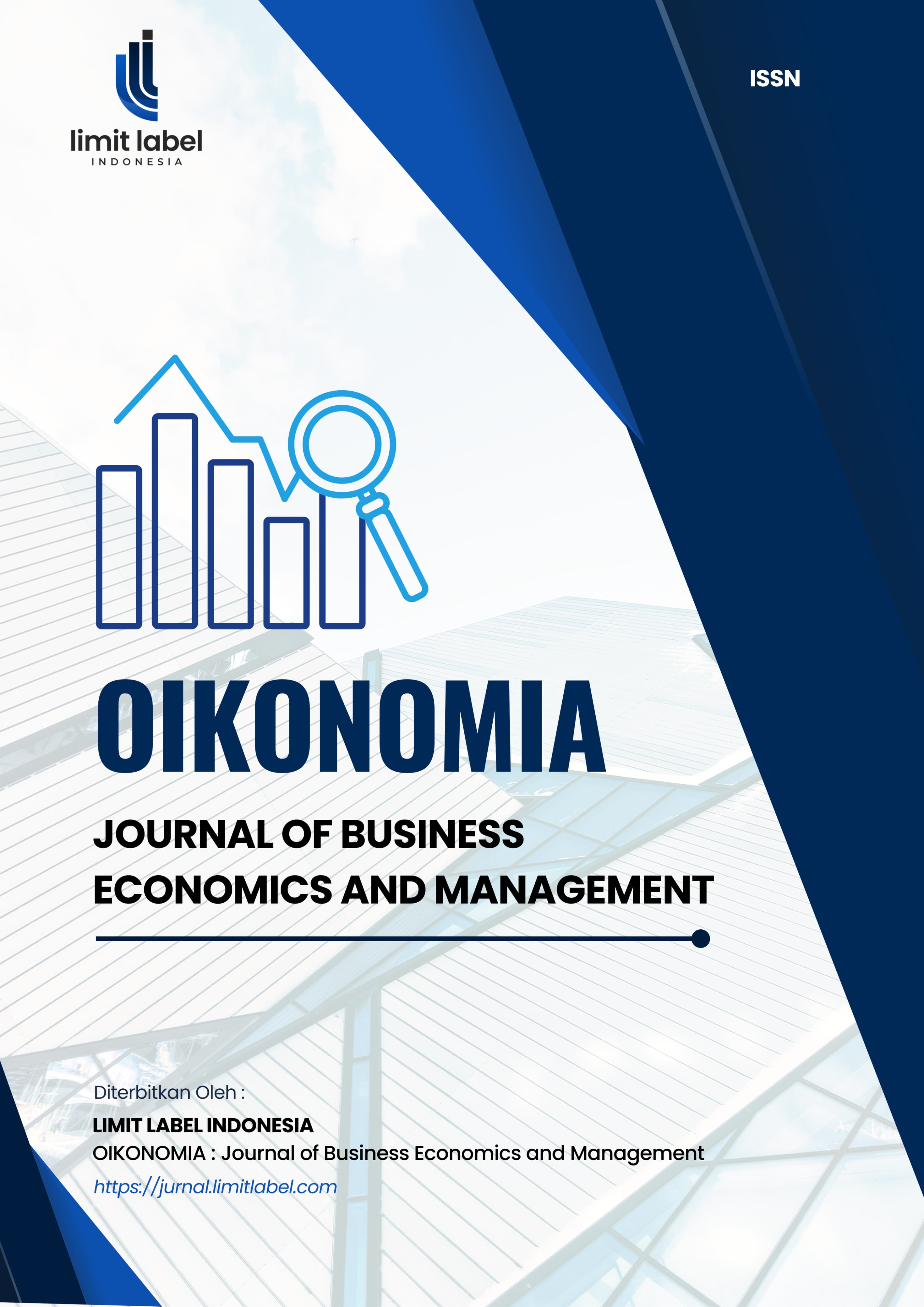MEMBANGUN EKONOMI DALAM TINJAUAN HISTORIS PEMIKIRAN EKONOMI ISLAM DAULAH FATIMIYAH
Keywords:
Fatimid Daulah, Economy, Islamic ThoughtAbstract
Islamic economic thought will always develop and move dynamically according to the times. Since Islamic economics was implemented in the era of the Prophet Muhammad SAW, the ideas taught have provided the basis for managing human economic life based on Islamic principles originating from the Koran and Sunnah. The thoughts taught by the Prophet continued and developed until they reached the peak of their glory in line with the peak and progress of Islamic civilization several centuries ago. One of them is the Fatimid daulah as an Islamic daulah in the 10th century which has achieved brilliant achievements in the history of Islamic civilization. However, the progress of contemporary economic thought and systems today deviate greatly from Islamic principles. Therefore, the purpose of this article is to examine and study economic thinking and policies in Islamic civilization, namely the Fatimid state. The method used is a qualitative methodology using a descriptive-analytic approach, by exploring journal and book reference sources based on the topic of discussion. The power of the Fatimid daulah lasted for 262 years (909-1171 AD), led by 14 Caliphs. the beginning of the Fatimid civilization when it was led by Caliph al-Muiz after coming to power in Egypt. And civilization was experienced when al-Aziz became Caliph. The progress of the Fatimid civilization can be seen from developments in the economic sector, including increasing development that supports the economic productivity of society, making Egyptian cities the center of world trade, strengthening the agricultural sector, and optimizing sources of income in terms of taxes and the developed business sector. Apart from that, there is an economic thinker from the Fatimid era, namely Ahmad ibn Nasr al-Daudi whose work entitled al-amwal, contains economic thoughts related to Islamic public finance and the concept of distribution and allocation justice
References
Abbas, S. A. (2020). Dinasti Mamluk di Mesir dan Kejayaannya. Ash-Shahabah Jurnal Pendidikan Dan Studi Islam, 6(2), 154–156.
Anshary, A. H. (2016). Pembangunan Ekonomi Di Masa Pemerintahan Dinasti Fatimiyah. AT- TARADHI: Jurnal Studi Ekonomi, 7(1), 59–73.
Hasbiyallah, (Fakultas Ushuluddin, Adab, D. I. S. N. C. (2022). Peradaban Islam di Afrika Utara Masa Dinasti Murabithun, Muwahidun dan Fatimiyah. Jurnal Tamaddun, 10(2). https://www.syekhnurjati.ac.id/jurnal/index.php/tamaddun/index
Lubis, I. S., Daulay, H. P., Sumanti, S. T., Saw, M., & Daulah, F. (2023). Studi Peradaban Islam Pada Masa Daulah Fathimiyah. Tsaqofah & Tarikh, 8(1), 73–84.
Nasution, S. (2013). SEJARAH PERADABAN ISLAM (3rd ed.). Yayasan Pusaka Riau.
Qoyum, A., Nurhalim, A., Fithriady, Pusparini, M. D., Ismail, N., Haikal, M., & Ali, K. M. (2021). SEJARAH PEMIKIRAN EKONOMI ISLAM (A. SAKTI (ed.)). Departeman Ekonomi dan Keuangan Syariah-Bank Indonesia.
Rahmadi, F. (2017). Dinasti Fathimah di Mesir (Analisa Pertumbuhan, Perkembangan dan Pengaruhnya). Al -Hadi, 2(2), 425–431.
Rofiqoh, M. (2022). Dinasti Fatimiyyah: Sejarah dan Perkembangan Peradaban Islam Di Mesir. COMSERVA Indonesian Jurnal of Community Services and Development, 1(9), 565–576. https://doi.org/10.36418/comserva.v1i9.118
Supriadin, I. (2021). Dinasti Fatimiyah : Analisis Kemajuan Dan Runtuhnya Peradaban Islam Di Mesir.
FiTUA: Jurnal Studi Islam, 2(1), 101–116. https://doi.org/10.47625/fitua.v2i1.321
Syahputra, R. (2019). Analisis Pemikiran Ahmad Ibn Nasr Al-Daudi (W. 402H/1011 M) Tentang Keuangan Publik Studi Kitab Al-Amwal. Ecobisma (Jurnal Ekonomi, Bisnis Dan Manajemen), 5(1), 29–41. https://doi.org/10.36987/ecobi.v5i1.72
Zamzam, F., & Aravik, H. (2019). Perekonomian Islam Pada Masa Dinasti Fatimiyah. Mizan: Journal of Islamic Law, 3(1), 99. https://doi.org/10.32507/mizan.v3i1.432












